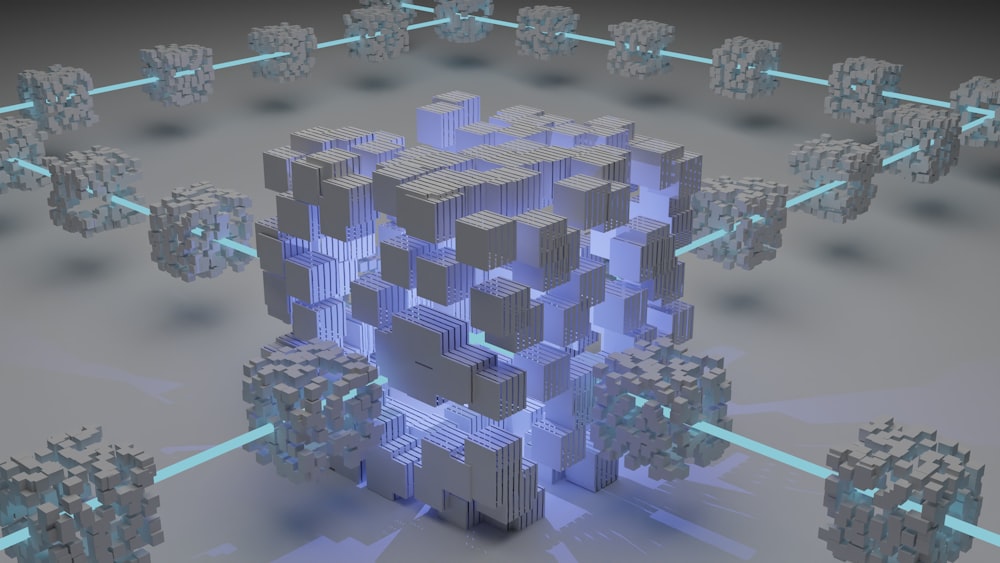📚 Table of Contents
The digital landscape is undergoing a seismic shift, moving from a world of centralized platforms to one of user-owned, verifiable digital property. At the heart of this revolution are NFTs and digital assets, creating entirely new economies and career paths. But what does it truly take to build a sustainable and successful career in this dynamic and often chaotic space? It requires a unique and multifaceted blend of skills that go far beyond simply understanding what a non-fungible token is.
Technical Foundations: More Than Just Crypto
While you don’t need to be a senior blockchain developer, a solid grasp of the underlying technology is non-negotiable for a career in NFTs and digital assets. This foundation allows you to navigate the space with confidence, understand risks, and identify genuine innovation. First and foremost, you must comprehend the core concepts of blockchain: decentralization, immutability, and transparency. Understand how a transaction is recorded on a distributed ledger and why this creates trust without a central authority. Delve into the specifics of the Ethereum blockchain, as it hosts the majority of NFT activity; familiarize yourself with concepts like gas fees, which are the computational costs required to process transactions and execute smart contracts, and how network congestion can make minting or trading prohibitively expensive.
A deep understanding of smart contracts is arguably the most critical technical skill. These self-executing contracts with the terms of the agreement directly written into code are the backbone of every NFT. For your career in NFTs, you should be able to read a basic smart contract on a block explorer like Etherscan. You don’t need to write one, but you should be able to identify key functions, verify the contract’s authenticity, and understand what “minting” actually does from a technical perspective. This skill is vital for assessing the security and legitimacy of an NFT project, as vulnerabilities in smart contract code have led to millions of dollars in losses. Furthermore, knowledge of token standards, especially ERC-721 and ERC-1155, is essential. ERC-721 is the standard for unique, non-fungible tokens, while ERC-1155 allows for a single contract to contain both fungible and non-fungible tokens, a feature widely used in gaming assets. Understanding these standards helps you grasp the functional differences between various types of digital assets.
Finally, practical wallet management is a fundamental skill. This goes beyond just creating a MetaMask wallet. It involves understanding seed phrases, private keys, and the absolute importance of securing them. It means knowing the difference between hot wallets (connected to the internet) and cold wallets (hardware storage), and how to use them safely. For a professional in this space, learning to interact with decentralized applications (dApps)—from NFT marketplaces like OpenSea and Blur to decentralized finance (DeFi) protocols used for lending or staking your assets—is a daily requirement. This hands-on technical competence is the bedrock upon which all other skills are built.
Artistic and Design Acumen
The visual and conceptual layer of an NFT is its most immediate point of connection with the world. Therefore, a career in NFTs and digital assets demands a refined sense of artistic and design acumen, whether you are the creator or a professional working to market and sell the assets. For artists, this means mastering your chosen digital medium, be it 2D illustration, 3D modeling, generative art, or digital photography. However, it also requires an understanding of how your art functions as part of a larger collection. Considerations like rarity, trait generation, and overall collection cohesion are paramount. A successful PFP (Profile Picture) project, for instance, relies on a library of well-designed, interoperable traits that can be algorithmically combined to create thousands of unique, yet stylistically consistent, avatars.
Beyond traditional art skills, knowledge of UX/UI (User Experience/User Interface) design is becoming increasingly valuable. The platforms and marketplaces where NFTs are bought, sold, and displayed are themselves digital products. Professionals who can design intuitive, engaging, and beautiful interfaces for these web3 experiences are in high demand. This also extends to the design of the accompanying websites and “minting” experiences for NFT projects. A clunky, confusing minting process can doom an otherwise excellent project. Furthermore, skills in motion graphics and interactive design are highly sought after, as the space evolves beyond static images to include animated artworks, interactive HTML5 canvases, and assets that exist within virtual worlds and games. The ability to tell a story and build a compelling brand identity through visual design is a powerful skill set for a career in this creative-driven industry.
Web3 Community and Social Mastery
In the world of NFTs and digital assets, the community is not just an audience; it is the product, the marketing team, and the support system all rolled into one. Building and nurturing a community is arguably the single most important non-technical skill for a successful career. This begins with mastery of specific platforms, primarily Twitter (X) and Discord. Twitter is the global town square for web3, where trends are set, partnerships are announced, and personalities are built. Understanding how to create engaging content, use threads effectively, and participate in spaces is crucial.
Discord, however, is where the real community building happens. For a career in NFTs, you must become an expert in managing a Discord server. This involves far more than just chatting; it requires structuring channels logically, setting up complex permission roles with bots like Collab.Land to grant access based on NFT ownership, organizing community events like AMAs (Ask Me Anything) and Twitter Spaces, and fostering a positive, inclusive culture. It’s about conflict resolution, hype generation, and transparent communication. A project manager, community manager, or founder who cannot effectively engage and grow a community will see their project stagnate, regardless of its technical or artistic merits. This skill is about human psychology, communication, and creating a sense of shared purpose and belonging that turns casual holders into passionate advocates.
Business and Entrepreneurial Strategy
Treating your involvement in NFTs as a hobby is one thing; building a career requires a sharp business and entrepreneurial mindset. This encompasses a wide range of skills, from project management and marketing to financial literacy and long-term strategic planning. First, understanding the mechanics of project launches is key. This includes designing a tokenomics model (how the value flows within the project’s ecosystem), planning a minting strategy (allow list, public sale, pricing), and creating a roadmap with achievable, tangible goals that deliver value to the community over time.
Marketing in web3 is a unique discipline. It combines traditional digital marketing principles with web3-native tactics like allow list raffles, collaborations with other projects, and effective use of the aforementioned community platforms. Financial acumen is also critical. This means being able to read market charts, understand trading volume and floor prices, and manage a digital asset portfolio. It also involves understanding new economic models like royalty structures for secondary sales, staking mechanisms that provide passive income to holders, and the tokenization of real-world assets. For those on the entrepreneurial path, skills in fundraising, whether through venture capital, a successful mint, or a token launch, are indispensable. A career in NFTs demands that you view digital assets not just as collectibles, but as the foundation of new business models and decentralized organizations.
Legal and Regulatory Knowledge
As the NFT and digital asset market matures, it is moving from a regulatory grey area into the focused gaze of governments worldwide. A successful career in this field now requires a foundational understanding of the evolving legal landscape. Ignorance is not a defense, and the consequences can be severe. Key areas of concern include intellectual property (IP) rights. When you buy an NFT, what are you actually purchasing? The answer is not always straightforward. Some grants full commercial rights to the underlying art, while others grant only a personal license. Professionals must be able to navigate and draft clear terms and conditions that define these rights unambiguously.
Securities law is another critical area. Regulatory bodies like the U.S. Securities and Exchange Commission (SEC) are increasingly scrutinizing whether certain NFTs or tokens constitute investment contracts and are therefore subject to securities regulations. Understanding the Howey Test and its application to digital assets is crucial for anyone launching a project to avoid severe legal repercussions. Furthermore, tax implications cannot be ignored. In most jurisdictions, buying, selling, and trading NFTs are taxable events. A professional in this space must understand their tax obligations related to capital gains and losses, as well as the complex reporting requirements for crypto transactions. While you don’t need to be a lawyer, cultivating legal literacy and knowing when to consult a specialized attorney is a vital risk-mitigation skill.
Analytical and Data-Driven Mindset
Beyond the hype and floor price memes, the NFT ecosystem generates a massive amount of on-chain and off-chain data. The ability to analyze this data is a superpower for building a career in NFTs and digital assets. This involves using analytics platforms like Dune Analytics, Nansen, and Etherscan to derive actionable insights. For example, you can analyze the holder distribution of a project to see if it’s overly concentrated in a few “whale” wallets, track the buying and selling patterns of smart money investors, or evaluate the trading volume and liquidity of a particular asset.
This analytical skill set applies to multiple roles. A collector or trader uses it to make informed investment decisions rather than following fleeting social media trends. A project manager uses it to measure community health, track the success of marketing campaigns, and make data-driven decisions about future development. A marketer can identify the most effective channels and messaging by analyzing engagement metrics. Learning to write basic queries on platforms like Dune, or at least knowing how to interpret the dashboards created by others, allows you to cut through the noise and base your strategies on concrete evidence. In a market driven by sentiment and speculation, a disciplined, data-driven approach provides a significant competitive advantage.
Conclusion
Forging a lasting career in the world of NFTs and digital assets is not about mastering a single discipline. It is about becoming a versatile “T-shaped” individual: possessing deep expertise in one or two core areas, such as smart contract development or community management, while maintaining a broad, working knowledge of all the interconnected facets—technology, art, community, business, law, and data. This dynamic and rapidly evolving space rewards continuous learning, adaptability, and a genuine passion for the paradigm shift towards a decentralized digital future. By diligently cultivating this diverse skill set, you position yourself not as a passive observer, but as an active, valuable builder in the next chapter of the internet.
💡 Click here for new business ideas


Leave a Reply